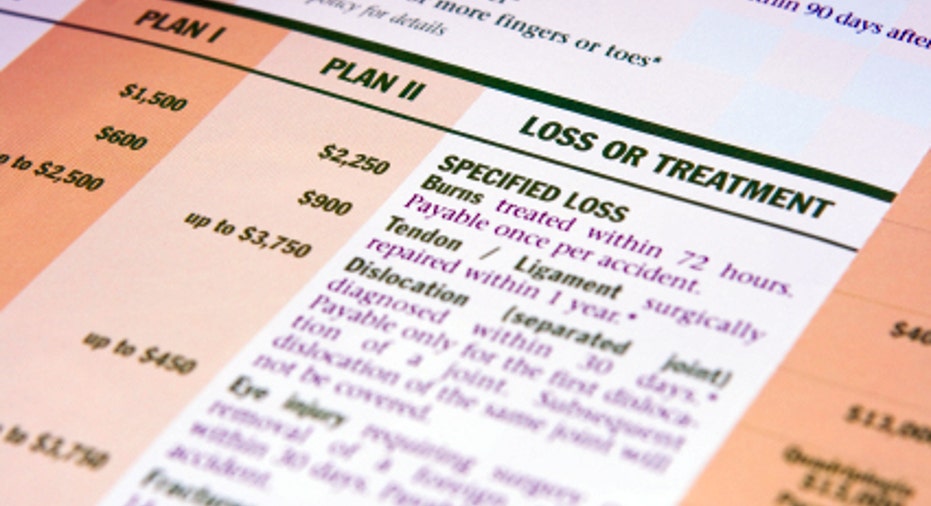How Will Obamacare's Uninsured Penalty Work?

Beginning in 2014, Obamacare requires all but a few Americans to obtain health insurance. The question is, will they?
Odds-making by health care experts on whether nearly 50 million uninsured Americans will respond to the Affordable Care Act's "individual mandate" has been rivaled only by prenatal speculation surrounding the birth date and gender of Britain's Prince George.
"Now it's becoming real," says Douglas Hough, associate director of the Bloomberg School of Public Health at Johns Hopkins University and author of "Irrationality in Health Care." "Instead of being conceptual, now the individual parts of the ACA are coming into effect and, with the individual mandate, people are going to have to start making some decisions."
And one of the biggest decisions is whether to risk the mandate's penalty.
The cost of going uninsured
Beginning next year, most uninsured Americans who can afford it will be required to obtain what the federal government defines as "minimum essential coverage." What's essential typically includes things such as hospitalization, emergency and ambulatory services, maternity, newborn and pediatric care, lab tests, treatment for mental illness and substance abuse, and prescription drug coverage.
If you're already covered by a qualifying individual policy, an employer group plan, or a government program such as Medicare, Medicaid or the Veterans Health Administration, you're automatically in compliance with the individual mandate.
Those without coverage in 2014 face a tax penalty of 1% of their annual income or $95, whichever is greater, and a per-child fine of $47.50, up to a family cap of $285. By 2016, the penalty, which is added to the individual's federal income tax, increases to the greater of 2.5% of income or $695 per individual.
Excused from the requirement are incarcerated individuals, undocumented immigrants, members of American Indian tribes and congregants of religious groups opposed to health insurance. Those with incomes so low that they are not required to file a federal income tax return -- roughly $10,000 for individuals and $20,000 for families -- and those who would have to pay more than 8% of their annual income for health insurance also will not be penalized for lack of coverage.
Who's gonna know?
You won't have to demonstrate that you have coverage, or an exemption from the mandate, until you file your 2014 federal income tax in 2015.
How will this reporting work? While the final details are still forthcoming, your health insurer likely will be required to send both you and the Internal Revenue Service a form stating that you have the required coverage. You would file this form along with your federal income tax return.
If you owe the penalty, you'll be expected to make the payment when you file your return. If you fail to do so, the IRS says it may subtract the amount from any refund you have coming.
Hough predicts that, for most, the availability of affordable and often subsidized health insurance through the new state health marketplaces will sell far more policies than the threat of a tax penalty.
"First of all, the fine is $95. Second, it's not going to be in their face where they have to write a check for it; it's going to hit their tax form, where it's probably going to be lost to the consumer," he says. "While some of them are voluntarily uninsured, most of them just can't afford it. This gives them some chance of getting that insurance at a decent rate."
Obamacare's enrollment window
While consumers can purchase health coverage anytime through the private market, those who wish to take advantage of the more affordable and subsidized offerings in the state marketplaces will need to do so during open enrollment, which began Oct. 1 and runs through March 31, 2014. If you move out of state, change marital status, have a baby or experience certain changes in income, you may be able to shop in your state marketplace outside the open enrollment period.
Janet Schwartz, assistant professor of marketing at Tulane University, says it's high time for everyone to jump into the (insurance) pool.
"Just as you can't buy car insurance the day after an accident or homeowners insurance the day after a hurricane and expect the insurer to pay for it, you shouldn't be able to buy health insurance just when you get sick," she says. "That's what the individual mandate is designed to prevent. Requiring everybody to have health insurance should lower costs for a lot of people."
A focus on young adults
Policymakers and health insurers alike are keeping a close watch on the estimated 21 million uninsured young adults. Pulling this relatively healthy demographic into the insurance pool to offset older Americans with expensive chronic medical conditions is considered key to unlocking the cost benefits of the Obamacare individual mandate.
Jen Mishory, deputy director of Young Invincibles, a young adult advocacy group based in Washington, D.C., says recent polls suggest that 3 out of 4 uninsured young people may jump at the chance to purchase affordable coverage.
Hough agrees: "I think most young people are going to sign up. My guess is the abstinence rate will be 5% to 10%."
Young Invincibles is not only pushing to make young adults aware of the new state online marketplaces, but to educate them on the basics of health insurance so they'll be prepared to shop for affordable coverage.
Copyright 2013, Bankrate Inc.



















